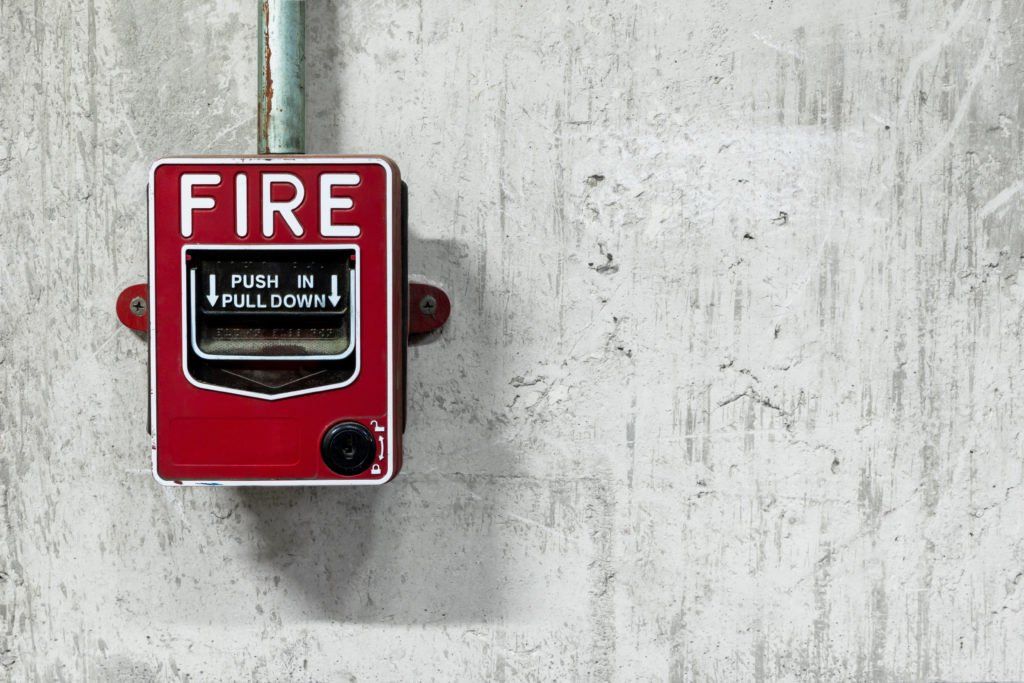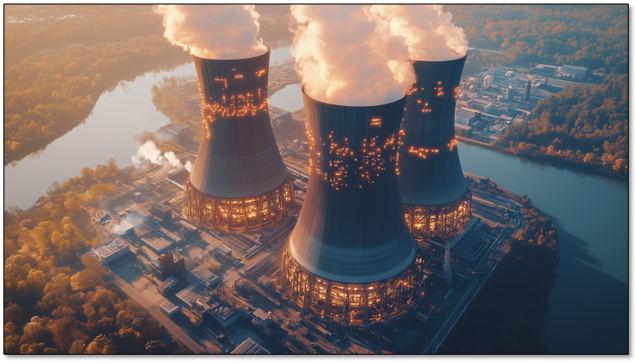ABOUT US
BECOME A MEMBER
REALTORS
AFFILIATES
consumers
Commercial Property Management; Rise & Shine


Nothing wakes me up quite like the sound of fire alarms in the morning. Just when it seems like I'll be having an idyllic Friday, made ever so much more enjoyable by getting to wear jeans and shoes that don't hurt and there exists the high probability of getting to do a little internet shopping after a nice lunch with a few girlfriends . . . a day filled with promise . . . and then they start. That oh too familiar strobe of shrill, pulsing, rhythmic blasts guaranteed to get even the laziest one in the office up and out of his fully adjustable rolling armchair and headed for the exit. In multi-tenant facility management, especially mixed use office and industrial facility management, the alarms signal a protocol of practiced routine things accompanied by a journey into the unknown. It may be something as simple as a kid whose Scooby Doo backpack decoration got jammed into the pull station during a game of "let's body slam each other up against the hallways" as he enters the classroom. Or it may be the apocalypse, or anything between those two scenarios is also entirely possible.
For the most part the teams of people who manage large facilities like business parks (in my case) but also in factories, medical complexes, multi-tenant manufacturing sites, shopping malls, convention centers and resort hotels know well in advance when pre-scheduled practice drills, the fire marshal's inspections, maintenance work and construction based tie-ins to the sprinkler system will happen -- all which have the expectation of audible fire alarms. The worst part of my job is those totally unexpected calls from people asking me why the alarms are going off. These come from tenants as they are mid-evacuation three buildings (and four city blocks) away.
Not knowing why and basically being clueless about what is going on when I have to coordinate the response and initiate a sequence of events to respond is like being brought into the game after the coach has let the QB stay in until the mid-fourth quarter and the score is 3-49. Plus on top of it, I have to be polite yet uncharacteristically brief . . . "thank you, I'll find out" click. As it turns out, people who are scared, stressed and shocked tend to want to go on and on and chat, and I'm in a hurry. So now I'm up and I'm talking while I move fast, preferably on a golf cart but too often on foot. At this point I am winging it all. I am moving but ready to pivot based on the most recent information I get. My location is based on who on my team I can reach as the minutes go by and the alarms keep ringing. I am moving rapidly between the area of the reported alarm and the area where the first responders need to be met in case I cannot reach anyone key to the response plan in which case I must meet the responders myself. I also need to know where else the alarms are sounding if they are not ringing where I am and try to determine where/why/how they started.
I smell the air for smoke, chemical odors or anything odd as I listen to the sounds above and beyond the 'normal' in my vicinity while feeling the building vibrations under my feet as I walk. Mind you during all of this I am on the cell phone both calling and receiving calls one after another. In any type of alarm event -- from an internal tenant driven evacuation, a partial or a full facility alarm situation -- in the back of my mind I have many coexistent and non-linear thoughts. Is this a "real" emergency? Is it a false alarm; and if so, from what source? What is it? Where is it? Are there injuries or worse? Do I have access gates that need to be opened for first responders? Who is near enough but not inside an event area (proximity) that may need to be evacuated? Primary are always the school children, the disabled, any pregnant women and on down the list. Knowing what other tenants and uses are located nearby and also adjacent to an event area is crucial. Sadly the only way to learn all of these things first-hand is from having worked through a fire, two floods, a bomb threat, an intruder and an explosion. Hopefully you will never have to deal with any of these, but I do urge you to always treat alarms with the respect that they deserve. Every event must be treated like the worst case scenario until you can verify that it is not.
The firemen/EMTs/police/bomb sniffing dogs, etc. all need to be met and directed . . . either to the event site or to the main fire control panel. Regardless, I already know what they will ask and what they will find helpful which is basically "just the facts, Ma'am" to start and remain alert as they may want details later.
From the time that I first became aware that alarms had started, I have already contacted our internal facilities people to check the fire panel read-out and the powerhouse central system computers to tell me where and what, to the best of their ability, they can detect. I've spoken to my emergency contacts for the tenants in the immediate vicinity; and based on that information, I discuss with my facilities guys the need to address mechanical systems interventions like possibly shutting down the HVAC all together or engaging ventilation to pull air out of the area or to increase the influx of fresh air. My main designated contacts in the different buildings give me line-of-sight info, and the guards also share information and I also need to share information with them. It's a fully fluid and purely reactionary chain of events learned over time. There is plenty of room for judgment calls, spot prioritizing and of course a lot of room for error.
In an alarm scenario on a typical 8 a.m. to 5 p.m. workday -- meaning without special events going on in the conference centers -- a full-facility evacuation affects nearly 2,000 people. So in our scenario they are now all evacuated outside, hopefully being counted and managed in their pre-set meeting spots by their own protocols. For the property manager, thoughts are also concerning those people and their new environment. Is it raining? Snowing? Freezing cold? How far are they away from the event area? Is it far enough? Do I need to have them moved? All the while the phone continually rings and rings through every call that I am already on and I need to be nice . . . and concise. And people need to be patient, which they are not. They will call you until you answer; and if you don't answer, they will just keep calling over and over until you do or they get the information they want elsewhere.
We have a team, and it is a wonderful thing when the team is in place and everyone is on their best game. Usually, however, emergencies happen at inopportune times like when key people are out getting parts or at LCAR in a meeting or having a day off hunting for deer, sleeping or even having fun at a local pub. None of those make for a masterfully cohesive team response. We sometimes have to press other staff or service people onto the response team. As may be needed, I may have to dictate a message and ask two security guards to start calling a long list of 80+ tenant contacts with one guard starting at the top of the list and one guard from the bottom of the list until all are reached. We may ask an employee who is usually in janitorial to become a 'runner' and physically go to dispatch message as our technical/trade employees are 'all hands on deck' and cannot be on their phones. We do not use standard traditional computers in any alarm or emergency situation. When people are evacuated, they are not at their desks reading email and neither are we. Despite technology where many people get email on their phones, it is not dependable enough to risk safety in actual practice. To this end, we carry hard copy contact numbers (cell phone) info 24/7/365 because we have learned from our prior experiences that the internal phone systems which 'forward' calls from desk to cell phone cannot be counted on if electrical power is in question. We have redundant electrical power; however, in some situations the only safe option has been to literally shut it all down.
Meanwhile the 911 response team of firemen, EMTs, police, etc., have all arrived and have been met and updated, guided either to the event area/staging area or taken to the powerhouse to address the central control equipment. When an event is the "real deal", meaning fire, bomb threat, chemical leak, an explosion, etc. - the fire captain will take over and decide what he needs, wants and basically the trajectory of the rest of your foreseeable future. He decides when the alarms get turned off. He decides the fate of the building(s), the space and the operations. He may even lock out everyone, meaning empty the facility until it is all declared safe and that has the unique power to freak people out the most. The illusion that the facility is under the control of anyone who typically manages it is gone; and no matter what has happened, the alarms herald a warning that things are not going to be calm or enjoyable for quite some time.
Or looking at it the way I like to . . . if it is a truly good and lucky Friday ad it turns out it was all a simple false alarm triggered by internal maintenance work during which the technician had the system "called out" or on "test" so that blessedly no flotilla of firemen are coming and after I let everyone concerned know that "all is well" and that they may return to their cubicles, offices and classrooms on this special Friday . . . I may still make it to lunch with my friends AND if this luck continues, I might actually get a showing request so I can do my real job.
Facts, opinions and information expressed in the Blog represent the work of the author and are believed to be accurate, but are not guaranteed. The Lancaster County Association of Realtors is not liable for any potential errors, omissions or outdated information. If errors are noted within a post, please notify the Association. Posts represent the author's opinion and are not necessarily the opinion of the Association.








About Us
Since its inception in 1917, the Lancaster County Association of Realtors (LCAR) has been deeply involved in providing buyers and sellers with knowledgeable, ethical and competent agents.
All Rights Reserved | Lancaster County Association of Realtors®




